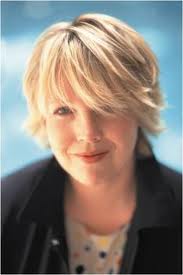Monday 13 November
The start of a very busy week with the launch of Enterprise Week at Victoria Park Plaza hotel.
Something of an overkill session where we had to listen to over three hours of talks from:
Stephanie Flanders, Economics Editor at BBC Newsnight
Philip Beadle, Teacher of the Year, Channel 4’s The Unteachables
Shaa Wasmund, presenter of Channel 4’s The Day I Got The Sack
Lord Karan Bilimoria, Chief Executive, Cobra Beer
David Frost, Director General of the British Chambers of Commerce
Kyle Whitehill, Director of Enterprise at Vodafone UK
Professor Richard Scase, author of Global Remix
Gemma Tummelty, President of the National Union of Students
Jeremy Crook, Director of Black Training and Enterprise Group
Stewart Wallis, Executive Director of the New Economics Foundation
James Murray-Wells, founder of Glasses Direct and 2005 Enterprising Young Brits award winner
Professor Zolta Acs – Why entrepreneurship works in the USA.
Rt Hon Margaret Hodge MBE MP, Minister of State for Industry and the Regions.
By then end of it my brain was thoroughly overloaded. I remember two keys points from morning.
1. Ed Balls informing the audience with a totally straight face that Rhubarb is the key industry of his Wakefield constituency. Surely two key characteristics of a politician are a sense of humour and a sense of the ridiculous.
2. Professor Richard Scase explaining the three components of business. 1. Design & creativity. 2. Production & manufacturing. 3. Marketing & distribution. Although we have lost no. 2 to China and India, we can still lead the world in 1 and 3.
During the session chaired by Lynne Brindley, Doug Richard of Dragons’ Den fame explained that a new business takes over you life so that your significant other becomes your insignificant other. Mandy Haberman the inventor of the Anywayup Cup http://www.mandyhaberman.com/ explained how important it is to have a simple but effective way of explaining your business idea or invention. She recalled a meeting with a business man who was not interested in her invention until she literally threw her cup onto his desk to show how effective her product was.





